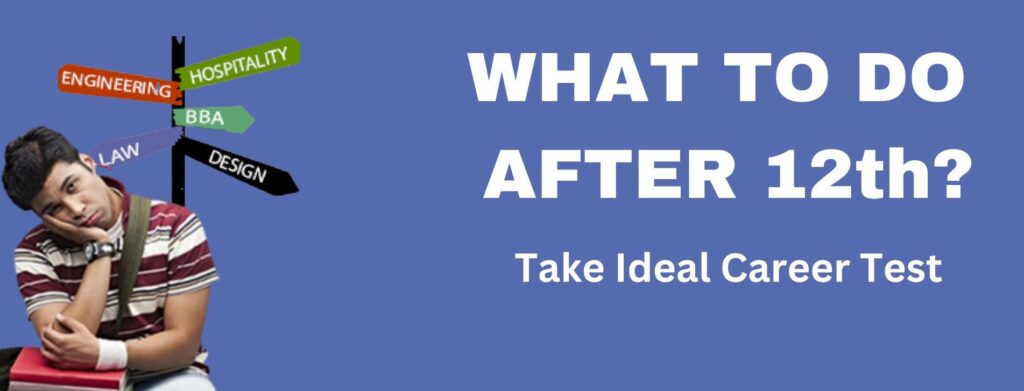Alternative Careers After Class 12th have various alternative paths to choose from, apart from pursuing traditional undergraduate programs. One alternative is to opt for vocational or skill-based courses. These courses equip students with practical skills in specific fields such as graphic design, coding, culinary arts, fashion designing, and more. This allows them to enter the job market directly or start their own ventures.
Alternative is to explore diploma or certificate programs. These programs provide specialized knowledge and skills in specific areas, such as engineering, hospitality, business management, or healthcare. They offer a quicker route to acquiring practical skills and entering the workforce.
Alternative Careers After Class 12th
Vocational Training
Vocational training programs offer specialized education and practical skills in various fields, providing individuals with the opportunity to gain hands-on experience and enter specific industries directly after completing Class 12th. These programs focus on equipping students with the technical knowledge and skills required for a particular trade or profession.
Vocational training can include fields such as automotive technology, culinary arts, fashion design, graphic design, web development, plumbing, electrical work, and more. The advantage of vocational training is that it allows individuals to acquire industry-relevant skills in a relatively shorter time compared to traditional degree programs. It offers a practical approach to learning and often includes internships or apprenticeships, which further enhance employability.
Diploma or Certificate Courses
Diploma or certificate courses are short-term educational programs that provide focused training in specific areas of study. These courses are designed to equip students with practical skills and specialized knowledge, making them suitable for individuals who want to enter the workforce quickly or enhance their existing skill set.
Diploma or certificate courses cover a wide range of fields, including digital marketing, event management, photography, interior design, animation, foreign languages, hotel management, and aviation, among others. They offer a more targeted approach compared to traditional degree programs, allowing students to gain in-depth knowledge and expertise in their chosen area.
Entrepreneurship
Entrepreneurship refers to the process of starting and running one’s own business venture. It involves identifying opportunities, developing innovative ideas, and taking calculated risks to create a sustainable and profitable enterprise. Choosing entrepreneurship as a career path after Class 12th can be a rewarding and fulfilling option for individuals who have a passion for innovation, independence, and problem-solving.
Armed Forces
Joining the armed forces is a noble and challenging career option for individuals after completing Class 12th. The armed forces encompass various branches, including the army, navy, and air force, and offer opportunities for individuals to serve their country and contribute to national security.
A career in the armed forces comes with several benefits and responsibilities. It provides individuals with a sense of purpose, discipline, and leadership skills. The armed forces offer comprehensive training in various fields, including combat, technical expertise, administration, and logistics.
Skill Development Programs
Skill development programs play a crucial role in equipping individuals with the necessary skills and competencies to succeed in today’s dynamic job market. These programs focus on enhancing specific skills, such as digital literacy, communication, soft skills, or industry-specific knowledge, to increase employability and career prospects.
FAQs About Alternative Careers After Class 12th
Q. What are alternative careers?
A. Alternative careers refer to career paths or options that deviate from traditional academic routes such as pursuing a bachelor’s degree or joining a professional course immediately after completing Class 12th. They encompass various vocational training programs, diploma courses, entrepreneurship, freelancing, skill development programs, and more.
Q. Are alternative careers as good as traditional career paths?
A. The value of alternative careers depends on individual preferences, goals, and the specific industry or field of interest. Alternative careers can offer unique opportunities for skill development, early entry into the job market, entrepreneurship, and specialization in specific areas. They can be equally rewarding and financially lucrative, based on the chosen path and individual’s dedication and hard work.
Q. Can I pursue higher education after opting for an alternative career?
A. Yes, pursuing higher education is still an option even after pursuing an alternative career. Many universities and institutions offer flexible education options, allowing individuals to continue their education while working or pursuing other interests. Additionally, gaining work experience and practical skills through alternative careers can be valuable when applying for higher education programs.
Q. How do I choose the right alternative career path?
A. Choosing the right alternative career path requires self-reflection, understanding your interests, skills, and long-term goals. Research different career options, consider your strengths and passions, seek guidance from career counselors or professionals in the field, and weigh the pros and cons of each option. It is essential to make an informed decision that aligns with your aspirations and offers growth opportunities.
Ideal Career Test
Ideal Career Test™ is suitable for person of any age group who is interested to discovering the right career options. The test report will help you to identify and explore career in order to get started in career search or change of career, it helps to identify strengths and potential weaknesses for the career search. To plan career goals and action steps.













